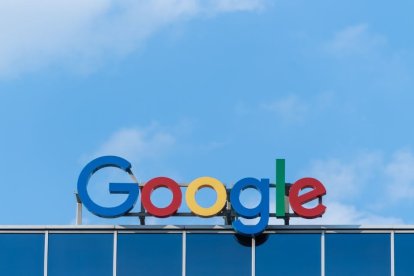Google backtracks and cancels plan to remove third-party cookies from Chrome
The company announced its intention to get rid of third-party online tracking in 2020, just after other browsers such as Safari and Firefox took the same step. Now, it is abandoning the initiative as it does not consider it viable for "everyone involved in online advertising."

Google HQ logo
Google recently announced that it will reverse a plan it began years ago to eliminate third-party cookies on its Chrome browser.
The company assured in 2020 that it intended to get rid of third-party online tracking. It did so just after its two main competitors, Safari (owned by Apple) and Firefox, reported that they had eliminated third-party cookies and, therefore, it was safer for their users to use these web browsers.
However, four years later, Google decided to change its mind and now will not go ahead with its plan to get rid of third-party cookies.
The decision was made after considering the impact of the changes on publishers, advertisers and "everyone involved in online advertising." This was assured this Monday through a blog post. Anthony Chavez, vice president of Privacy Sandvox, the name given to the proposal to eliminate third-party cookies in its Chrome web browser, said:
"We recognize this transition requires significant work by many participants and will have an impact on publishers, advertisers, and everyone involved in online advertising."
So how will Google assure its users that their data is protected? As Chavez explained in the blog post, the company will do so by offering its customers the ability to block or allow third-party cookies in the browser:
"We would introduce a new experience in Chrome that lets people make an informed choice that applies across their web browsing, and they’d be able to adjust that choice at any time."
However, the new proposal may not have the support of regulators. The Wall Street Journal reported that, in 2021, the company faced U.K. legislators who decided to open an investigation into whether removing third-party cookies would harm competition in digital advertising.
For that reason, and in order to comply with what it committed to at the time, the new plan is not yet final since, Chavez explained in the blog post, the company is "discussing this new path with regulators, and will engage with the industry as we roll this out."
RECOMMENDATION





















